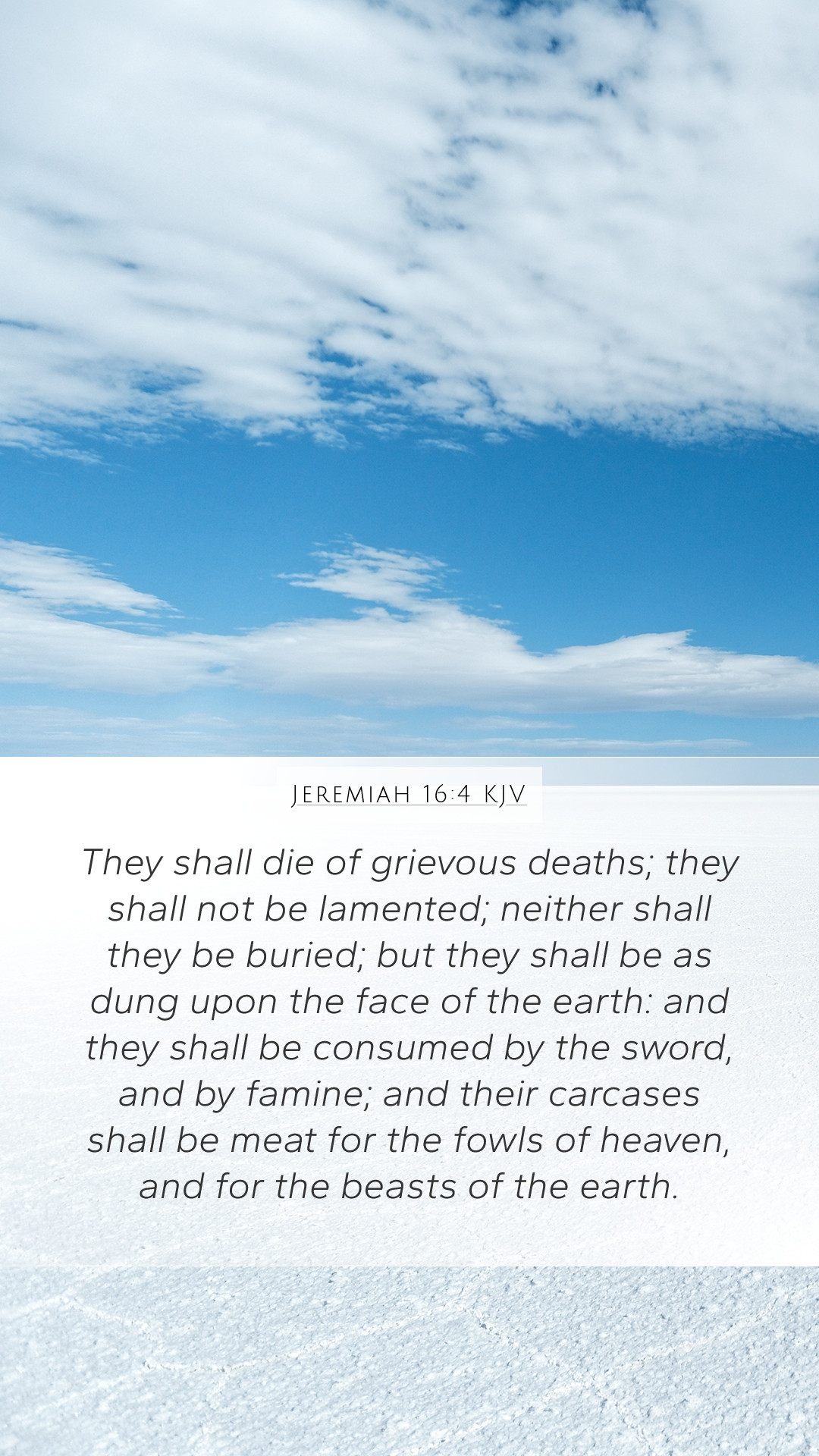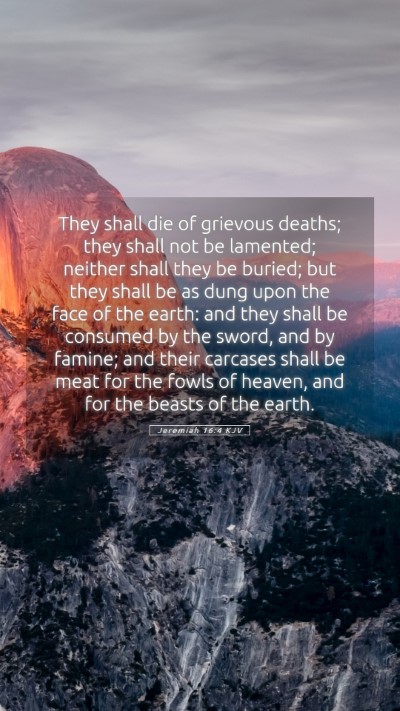Understanding Jeremiah 16:4
Bible verse: Jeremiah 16:4
"They shall die of grievous deaths; they shall not be lamented, neither shall they be buried; but they shall be as dung upon the face of the earth: and they shall be consumed by the sword, and by famine; and their carcases shall be meat for the fowls of heaven, and for the beasts of the earth."
General Overview
This verse is situated within a prophetic message concerning the fate of the people of Judah, emphasizing the severe consequences of their disobedience to God. The imagery presented is stark and conveys a sense of impending doom, depicting a future where the dead are left unburied, highlighting the gravity of their sin.
Commentary Insights
-
Matthew Henry's Commentary
Matthew Henry notes that this prophecy illustrates the dire consequences awaiting those who forsake God. He describes the deaths as "grievous," indicating that these are not natural ends but rather judgments from the Lord. Henry emphasizes the lack of mourning for the dead, suggesting that their wickedness has so alienated them from the community that they are beyond grief.
-
Albert Barnes' Notes
Albert Barnes interprets the phrase "as dung upon the face of the earth" as symbolizing the absolute desecration of their remains. This points to a curse on the nation where death leads not to honor, but to disgrace. He expounds on the notion that divine judgment would lead to unrecognizable decay and humiliation, reflecting the spiritual decay of the people.
-
Adam Clarke's Commentary
Adam Clarke highlights the severe famine and sword as instruments of judgment against the people of Judah. He asserts that the imagery used serves as a warning, culminating in the graphic depiction of carcasses left exposed. Clarke relates this to God's justice for persistent disobedience, urging readers to recognize the weight of their actions.
Theological Implications
This verse underlines the relationship between sin and judgment in biblical theology. It serves as a stark reminder of the consequences of turning away from God, offering profound insights into the nature of divine justice. As readers delve into its meaning, they are encouraged to reflect on their own lives and the need for repentance and reconciliation with God.
Application to Daily Life
Understanding this verse involves recognizing the seriousness of spiritual condition and moral choices. Believers are urged to avoid the path of disobedience, fostering a life that aligns with God’s will. As they study this verse, individuals can draw parallels to modern life and societal challenges, emphasizing the importance of community support and accountability in spiritual matters.
Related Bible Cross References
- Jeremiah 7:33 - Discusses similar themes of judgment and the fate of the dead.
- Ezekiel 39:4 - Describes the consequences of Israel's sin and the consumption of corpses.
- Lamentations 3:22-23 - Illustrates God's mercy amidst judgment.
- Deuteronomy 28:26 - Details the curses for disobedience, mirroring the outcomes mentioned in Jeremiah.
- Matthew 23:37-39 - Jesus laments over Jerusalem, reflecting on the consequences of rejection.
Conclusion
In exploring Jeremiah 16:4, one gains deeper insights into biblical themes of judgment, consequence, and the seriousness of spiritual deterioration. As believers study this scripture, they can grow in understanding the weight of their choices and develop a richer relationship with God through repentance and obedience.


